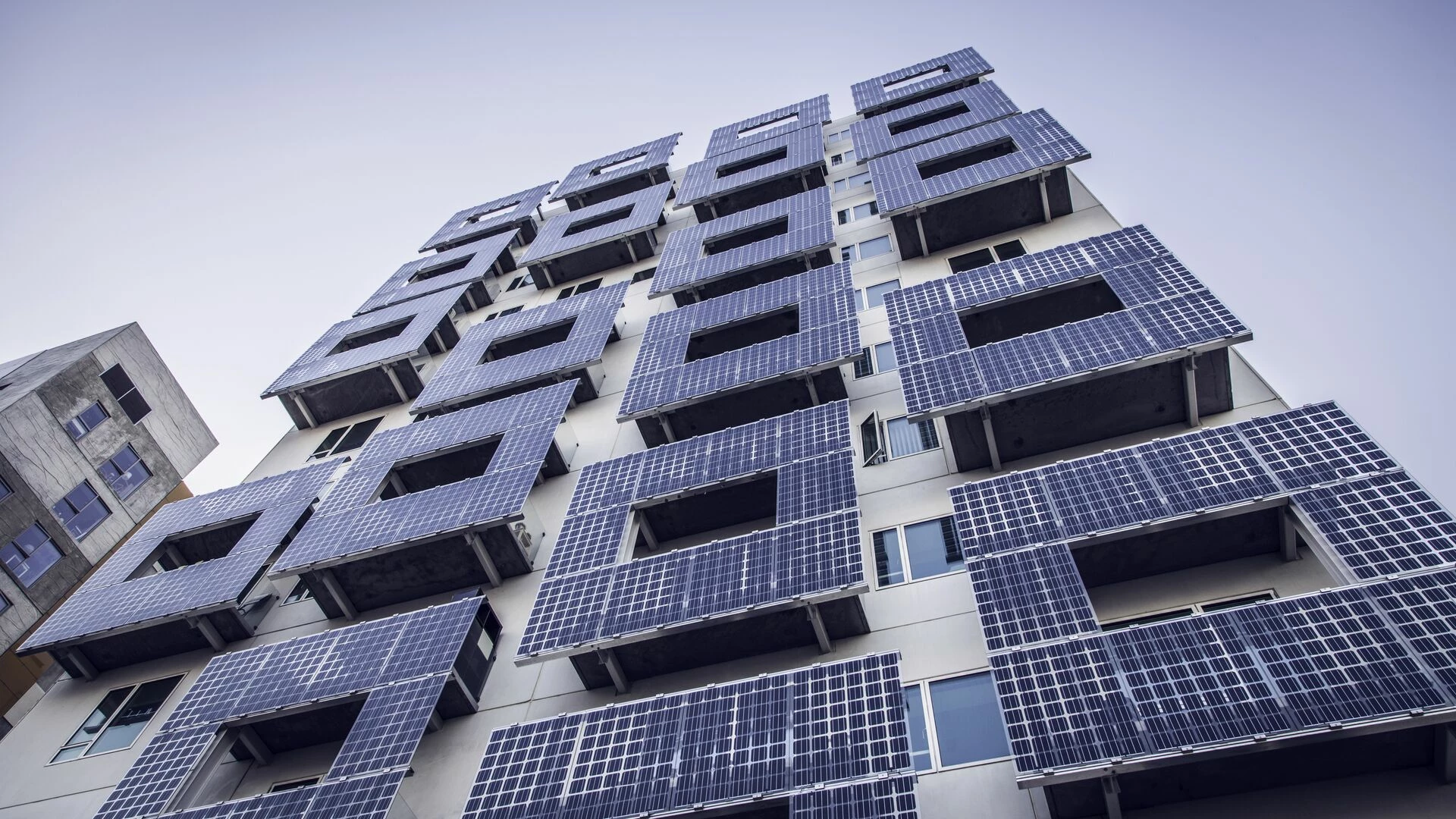
- Name:
- Martin Zistler
- Title:
- ESG Analyst
In-depth building energy renovations can mitigate risks and help property owners seize financial support opportunities.

Energy inefficient commercial real estate in the Nordics are at risk of declining market values, increasing operating costs, more restrictive financing opportunities and conditions, rising vacancy rates and tenants demanding “brown rental discounts”.
As if that wasn’t enough, the consequences of a changing climate are becoming more pronounced as some Nordic communities risk flooding, landslides, heatwaves, forest fires and wet winters – which all negatively impact building value, operations and durability.
To boost energy renovation rates and reduce the energy consumption of buildings, the EU Commission has proposed the Energy Performance of Buildings (EPBD) revision and adopted the EU ETS II. The latter introduces an emissions trading system for the building and road transport sectors. The EPBD and EU ETS II may require and incentivise, respectively, energy renovations for buildings in the lowest energy classes.
The EPBD revision in fact proposes an introduction of minimum energy performance standards in about five to seven years for commercial and residential buildings in the EU. Internal estimates show that regulatory-driven building renovations could require additional investments in building renovations of about EUR 20-45bn per year in the Nordics. The EU Renovation Wave also seeks to financially support building renovations, for example through the “recovery and resilience facility” (EUR 672.5bn) and the “cohesion policy funds” (EUR 330bn). Detailed support mechanisms are to be determined.
Energy inefficient buildings are increasingly in the spotlight as regulators develop non-financial reporting standards, Nordea and other finance providers make net-zero commitments and tenants demand more sustainable buildings. Industries have already developed technologies that support transitioning towards zero-emission, energy efficient buildings (passive houses, on-site power production and energy-efficient, zero emission heating). A green building transition is crucial as energy supply is already under pressure from the Russian war in Ukraine, the set REPowerEU Plan, emission price increases, extreme weather events becoming more frequent, tenants demanding more floor space, the electricity consumption per capita increases and industrial processes and transportation becomes electrified.
Nordea engages in dialogues with commercial real estate owners to analyse the energy efficiency of their buildings via Energy Performance Certificates (EPC). Subsequently, transition plans are discussed, including board-approved energy renovations and funding. Indeed, improvement measures such as additional insulation layers, LED lighting, solar panels and heat pumps require additional investments.
Such additional investments could be eligible for green financing, aligned with the current taxonomy, likely increase property market value, lower operating costs (electricity, heating and cooling) and decrease energy sector dependencies. Furthermore, energy renovations may receive subsidies and guarantees, and attract more tenants who are willing to pay a “green rental premium”.
Despite the economic viability of energy renovations and the upcoming regulatory pressure (minimum energy performance standards), it might take longer to implement investments as the current higher interest rate level is causing economic challenges.
In conclusion, commercial real estate owners face risks as well as opportunities in connection to their properties’ energy efficiency and emission levels. In-depth energy renovations can mitigate identified risks and help owners seize available financial renovation support.


Sustainable banking
Morningstar Sustainalytics has recently published a new report identifying companies that are taking steps to reduce emissions, set actionable targets and implement good governance practices. Nordea is highlighted for its significant progress in reducing emissions and its comprehensive climate targets.
Read more
Sustainability
Amid geopolitical tensions and fractured global cooperation, Nordic companies are not retreating from their climate ambitions. Our Equities ESG Research team’s annual review shows stronger commitments and measurable progress on emissions reductions.
Read more
Sector insights
As Europe shifts towards strategic autonomy in critical resources, Nordic companies are uniquely positioned to lead. Learn how Nordic companies stand to gain in this new era of managed openness and resource security.
Read more